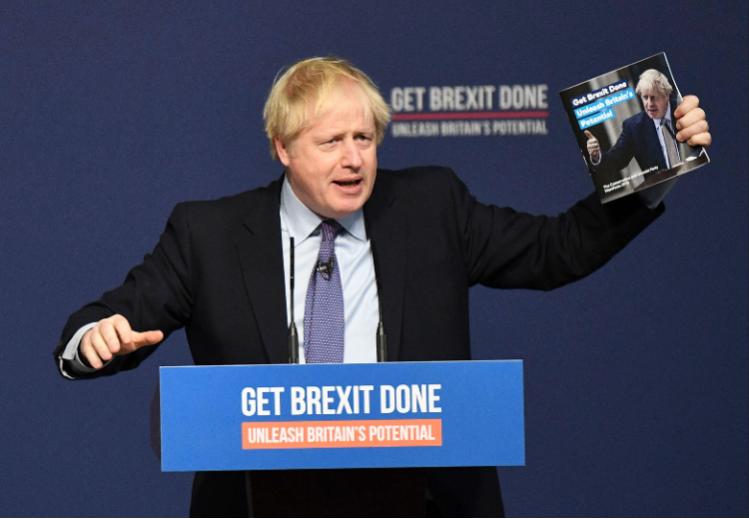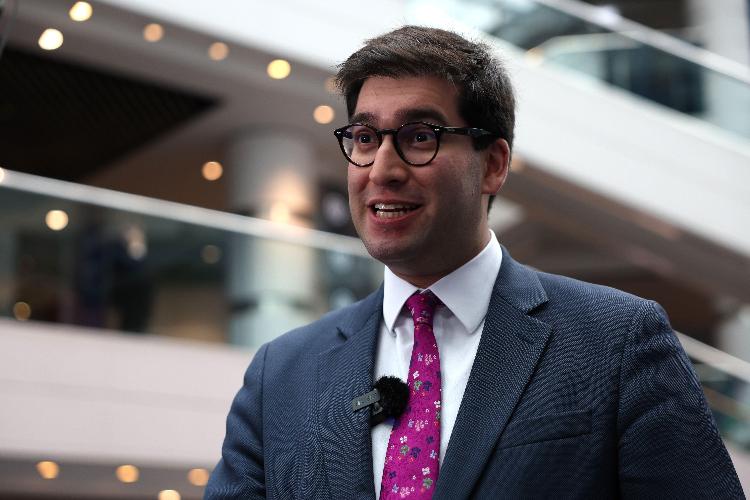Red wall, blue wall: Can the Tory coalition hold?
Red wall, blue wall (Credit: Adobe Stock)
7 min read
The Conservatives’ victory in 2019 led many to believe there had been a fundamental realignment in British politics as the party swept through a so-called red wall of formerly Labour seats. Now, the Tories face an uphill struggle to retain those gains, and appear vulnerable in some of their own blue wall heartlands. Sophie Church explores how the party intends to keep together its electoral coalition
When the Conservatives won the general election in 2019, it was by securing their largest majority since 1987. The party successfully united groups of the electorate who, on the face of it, did not have much in common: winning over voters in areas that had been hostile to the Conservatives for decades while retaining its base support.
Boris Johnson took the credit for engineering this realignment. Few dispute that his media celebrity, allied with a powerful slogan to “Get Brexit Done” and antipathy to Jeremy Corbyn all played their part. With all three factors now gone, many are wondering what could sustain the electoral coalition next year.
But talk of the Liberal Democrats smashing through the Tories’ blue wall, and Labour rebuilding its own red wall, obscures a central truth: voters are more alike than different, says Sebastian Payne, director of think tank Onward.
“My view is there’s not as much difference between the blue wall and the red wall as people think,” he says. “The whole story of the red wall is these places becoming structurally more conservative over time – socially and economically – and that it was the unique circumstances of 2019 that managed to tip them over from Labour to Conservative.”
Political strategist James Kanagasooriam coined the term ‘red wall’ in the run-up to the 2019 election. However, as Payne suggests, the Conservatives saw opportunity to appeal to Leave voters in these areas long before, with the Theresa May government targeting the same seats in 2017.
Aligning the red and blue wall strategies is not a hard thing to do, and [is] very achievable
For some Tories today, sustaining this long-pursued electoral coalition comes down to getting the basics right. Conservative MP for Wrexham, Sarah Atherton, for instance, says “the population and constituents all want the same thing”.
She adds: “They want lower taxes, they want control of the borders and laws, and they want to be realistic about net-zero aspirations.” As a result, she says that “aligning the red and blue wall strategies is not a hard thing to do, and [is] very achievable”.
 Boris Johnson's 'Get Brexit Done' slogan (Credit: Imago / Alamy Stock Photo)
Boris Johnson's 'Get Brexit Done' slogan (Credit: Imago / Alamy Stock Photo)
For now, James Price, director of government engagement at think tank the Adam Smith Institute, says government policy is to “get some delivery done of the various things they’re working on, so that, say, post-Christmas, they can say: ‘Look, here are all the things that we’ve actually managed to achieve.’”
Talk of tax cuts, for instance, is moving in the right direction, say some Tory MPs. Ranil Jayawardena, Conservative MP for North East Hampshire, says conversations with the Treasury have been “very positive”.
There are disagreements, however, when it comes to which taxes to cut – a dilemma that, to some extent, reflects the different voter groups the Tories want to keep on board.
Sir Robert Goodwill, Conservative MP for Scarborough and Whitby, wants them targeted at those most in need. He says that “if we abolish inheritance tax, it would certainly be seen by my constituents in North Yorkshire as only benefitting a very small number of people. And would mean that tax cuts couldn’t be made elsewhere.”
Jayawardena does not agree. “We are making the case that you can both [cut inheritance tax and income tax], and that both can be done in an affordable way,” he says. “The truth is that inheritance tax is unpopular with people across this country … because it’s a tax on aspiration.”
When it comes to which tax the Conservatives may pledge to cut, Goodwill admits that “promises don’t particularly carry much weight”. So would the Conservatives be trusted to cut taxes fairly across the red and blue walls, while ensuring the NHS is funded adequately?
For Atherton, raising more money from taxes to spend on the NHS wouldn’t necessarily solve its problems. “I don’t think spending and outcomes are necessarily linked when you look at the situation in England and Wales,” she says. “Wales gets more money, they spend more money, and yet the waiting lists are longer. So I think there is more … correlation than just money and outcomes within the NHS.”
And in Atherton’s constituency, an example of a red wall seat turned blue in 2019, she says voters are crying out for the NHS to be reformed, not propped up by the public purse.
“I can’t speak for constituents in England, I can only speak for constituents in Wales,” she concedes. “But they are saying: ‘Our healthcare has imploded.’ That’s the word they’re using. ‘It’s imploded in Wales, we need a complete review of the health and social care system.’”
While cutting taxes and easing pressure on the NHS may appeal to voters in both red and blue wall areas, Atherton disagrees with the suggestion from the predominately red wall Tory group, the New Conservatives, that immigration – a “major issue” for voters in both walls – can be solved by reducing the number of visas available for care workers.
Atherton says: “As it stands now, we could not do without migrant workers coming from abroad specifically to do these tasks. So I don’t agree necessarily with what they’re saying that we should be stopping that now, but … it is a future aspiration.”
In search of a dividing line as potent at Brexit, some senior Conservatives have urged the government to pull out of the European Convention on Human Rights (ECHR). However, a recent poll from think tank More in Common found that pledging to leave the ECHR at the next election could lose the Conservatives twice as many votes as they might gain from committing to the policy.
 Ranil Jayawardena (Credit: Isabel Infantes / Alamy Stock Photo)
Ranil Jayawardena (Credit: Isabel Infantes / Alamy Stock Photo)
Goodwill says: “I think that the people in the blue wall probably will be more likely to email their MP to say we must stay in, but I’m not sure if … whether we’re in or out will be a critical issue in terms of the results of the election.”
Luke Tryl, director of More in Common, says the Conservatives are fast approaching a major strategic decision on how to fight the next election. They would be mistaken, he says, to believe that so-called culture war issues can galvanise voters in Leave-voting former Labour heartlands in the same way that Brexit did in 2019.
Tryl says: “I suspect early next year, they’re going to have to make the call which is: ‘Look, this is about us saving as many seats as possible rather than trying to recreate the 2019 majority.’ Or the other way around: ‘The economy has been better … actually, there’s no reason we can’t fight to keep those new voters’,” he says.
If the Tories decided to push the culture wars rhetoric to retain red wall voters, says Tryl – despite the NHS and economy being a higher priority – they would risk alienating natural Conservatives in the blue wall whose vote could save the party from electoral wipeout.
However, Jayawardena says he doesn’t buy the binary choice. “I think you can do both,” he says. “The people in my constituency are as concerned as I’m sure folks elsewhere in the country are with, for example, the idea that anyone could self-identify as a woman and be in a women’s changing room in a leisure centre … So I think you can absolutely win over support across this country by being consistent [and] adopting common-sense policies.”
Sunak’s appeals for his party to pull together may prove fruitless if MPs cannot agree on the direction of fundamental policies. And whichever side the Tories decide to land – on culture wars, net-zero or housebuilding, for instance – voters in both the red and blue walls will only be receptive to the party if immediate problems are remedied, says Tryl.
“Voters just aren’t buying anything because they think the NHS is on its knees, and it costs £5 to get a packet of butter, right?” he says. “Until that changes, the government aren’t going to get a hearing on any of this stuff.”
